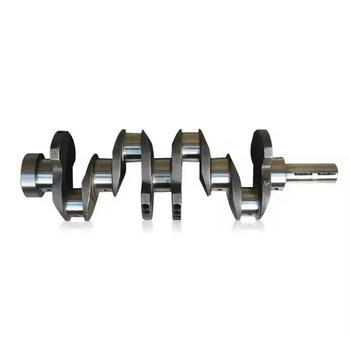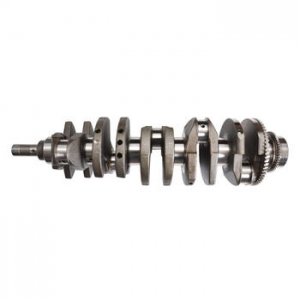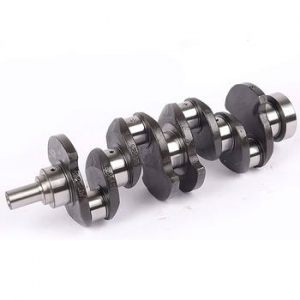When it comes to your vehicle's engine, the crankshaft plays a pivotal role. It's the heart of your engine, converting linear motion into rotational motion that ultimately propels your car forward. But what does that mean for you as a driver? Let's dive into the fascinating world of crankshafts.
Understanding the Crankshaft
Simply put, the crankshaft is a metal rod with offset weights, or "cranks," attached to it. These cranks convert the up-and-down motion of the pistons into a spinning motion. This spinning motion is then transferred to the transmission, which turns the wheels.
Why Crankshaft Maintenance Matters
Regular maintenance of your car's crankshaft is crucial for several reasons. For starters, it ensures optimal engine performance. A well-maintained crankshaft operates smoothly, reducing friction and wear on other engine components. This translates to better fuel efficiency and a longer lifespan for your engine.
Common Crankshaft Issues
Over time, crankshafts can suffer from various issues. One common problem is wear or damage to the bearings that support the crankshaft. This can lead to excessive vibration or noise during operation. Another issue is crankshaft misalignment, which can cause uneven wear on other engine components.
How to Maintain Your Crankshaft
So, how can you keep your crankshaft in top shape? Regular oil changes are key. The oil lubricates the crankshaft bearings, reducing friction and wear. It's also important to check the oil level regularly and top it up if necessary. If you notice any unusual noises or vibrations, it's worth getting your vehicle checked by a professional.
When to Replace Your Crankshaft
If your crankshaft is severely damaged or worn, replacement may be necessary. Signs that you might need a new crankshaft include persistent engine knocking, low oil pressure, or poor engine performance. However, replacement is a complex job best left to a professional.
The Benefits of a Healthy Crankshaft
A healthy crankshaft offers numerous benefits. It improves engine performance, increases fuel efficiency, and extends the lifespan of your vehicle. Plus, it can save you money in the long run by reducing the need for costly repairs.
FAQs
Q: How often should I have my crankshaft checked?
A: It's recommended to have your crankshaft checked during routine maintenance, such as oil changes or tune-ups.
Q: Can I replace my crankshaft myself?
A: While it's technically possible, crankshaft replacement is a complex job that requires specialized tools and knowledge. It's best to leave it to a professional.
In Conclusion
The crankshaft might not be the most glamorous part of your engine, but it's certainly one of the most important. By understanding its role and taking steps to maintain it, you can enjoy better engine performance, improved fuel efficiency, and a longer-lasting vehicle. Remember, your car's health starts with a healthy crankshaft.




